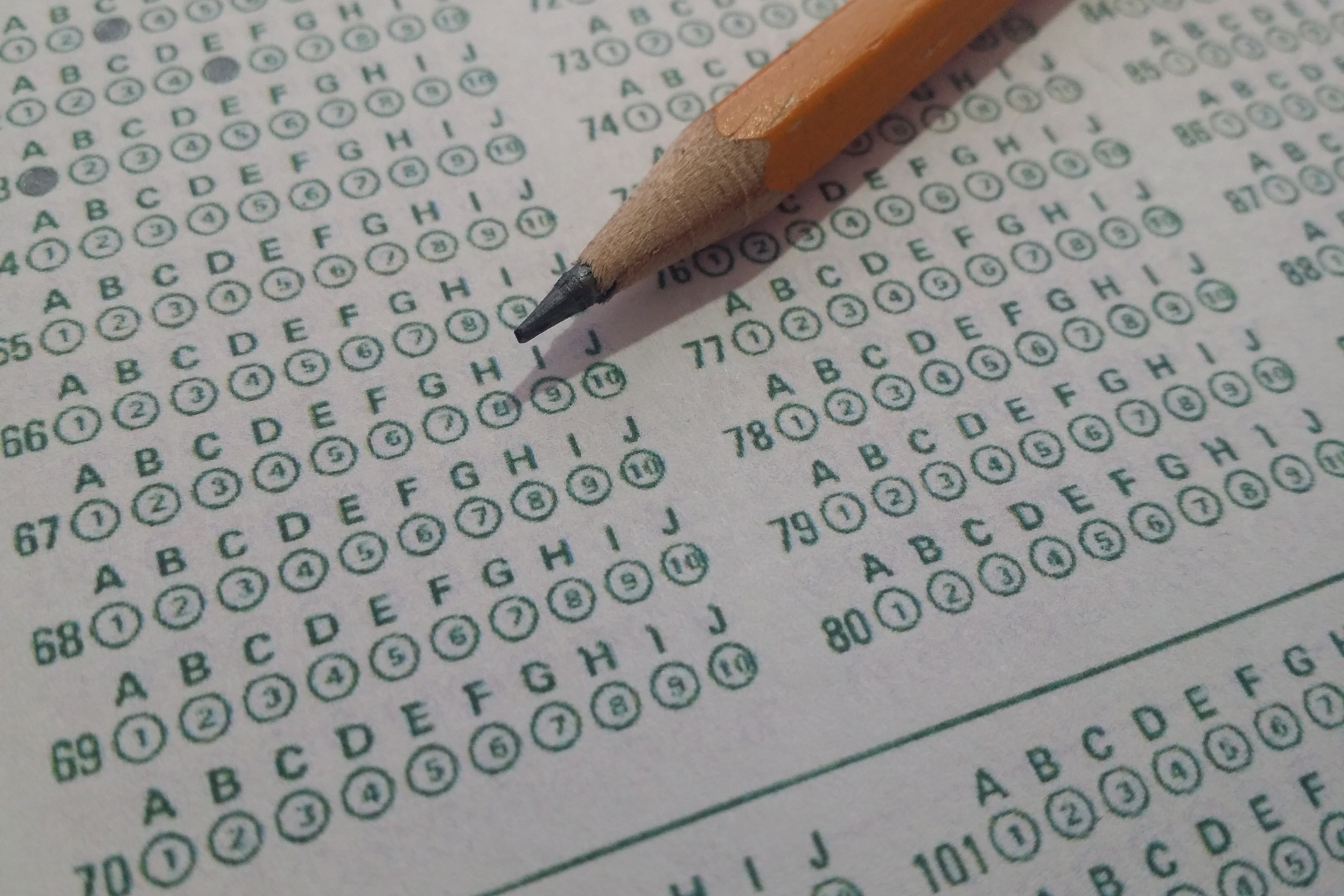How Many Times You Can Take the MCAT – (& When to Take It)
Wondering when to take the MCAT exam or how many times you can retake it? Learn the best times to take the MCAT, how many retakes are allowed, and strategic tips to improve your score for medical school admissions.
Posted June 26, 2025

Table of Contents
The MCAT exam is one of the most important steps in your path to attend medical school. With multiple test dates each year, including the earliest date available in January, varying preparation timelines, and the opportunity to retake the MCAT, deciding when to take the MCAT exam can feel overwhelming. Poor timing may leave you rushing to retake the MCAT test or missing application deadlines for medical school admissions.
This article will explain when to take the MCAT, how to plan your preparation, how many times you can take the exam, and key strategies to align with your medical school application timeline, including tips for scheduling the MCAT including the earliest test dates in the year.
When Should You Take the MCAT?
Key Considerations for Timing Your MCAT Test Date
The best time to take the MCAT depends largely on your medical school application timeline, preparation, and even your academic calendar. Here are the main factors to consider when choosing the right test date:
When Do You Plan to Apply to Medical School?
- If you’re planning to apply to med schools for the next cycle (Fall 2025), you’ll need your MCAT scores ready by early summer 2025. This means taking the exam in the spring or early summer of 2025. MCAT scores are released about 30 days after your test, so make sure your exam date allows time for score processing and submission to schools.
How Much Preparation Time Do You Need?
- Most students spend 3–6 months preparing for the MCAT. Depending on when you plan to take the test, start studying several months in advance. If you’re aiming for a spring test date, start your study schedule in the fall.
- Keep in mind, that the MCAT tests a wide range of subjects, including biology, chemistry, physics, psychology, and critical reasoning. If you feel you need more time in one subject area, plan for longer study sessions or additional prep months.
MCAT Scores’ Validity
- MCAT scores are valid for 3 years after your test date. However, many medical schools will not accept scores 2-3 years ago. You need to plan ahead to make sure your MCAT scores are within this window when you submit your application.
Consider Your Other Commitments
- Think about your academic calendar. Are you taking other major exams, like finals or the GRE? Do you have extracurricular activities or internship deadlines to work around? Consider when you’ll be at your most available and least stressed to focus on MCAT prep.
Best Test Dates Based on Your Goals
Here’s a detailed breakdown of when to take the MCAT depending on your situation:
| Scenario | Ideal Test Date | Why This Date Works |
|---|---|---|
| Junior Year Student (Applying in 2025) | Spring (April–May) or Early Summer (June–July) | These dates give you time to retake the MCAT if needed while allowing enough time for medical school applications. Most medical schools have specific requirements regarding when applicants should take the MCAT to avoid delays. |
| Senior Year Student (Applying in 2025) | Spring (April–May) | Taking it early lets you apply during the next cycle with your scores available. Most medical schools have specific requirements regarding when applicants should take the MCAT to avoid delays. |
| Gap Year Student (Applying in 2025) | Summer (May-August) | You’ll have more flexibility, and taking the exam earlier in the summer gives you time to retake if necessary. Most medical schools have specific requirements regarding when applicants should take the MCAT to avoid delays. |
| Post-Graduate (Planning for 2026) | Late Summer (July–August) | Taking the MCAT in these months lets you apply to med school in the next cycle without losing time for prep. Most medical schools have specific requirements regarding when applicants should take the MCAT to avoid delays. |
When Should You Take the MCAT If You’re Delaying Your Application?
If you’re considering delaying your medical school application (for example sophomore and junior year, by taking a gap year), your MCAT timeline will likely shift. In this case:
- Aim for a summer test date (May to August), ideally taking it no later than July.
- Taking the exam in August or September is possible but can delay your application process, and some schools may not accept scores from late test dates for the current application cycle. Check your target schools’ specific deadlines to ensure your scores will be accepted in time.
Consider the financial aspects and practical strategies of applying to med school, such as realistic school selection based on acceptance probabilities and creating a timeline for optimal MCAT preparation.
How Many Times Can You Take the MCAT?
The MCAT exam can be taken up to 7 times in your lifetime, with a limit of 3 attempts in a single testing year. The MCAT is offered between January and September, with over 30 test dates available. To align with medical school application timelines, aim to take the MCAT as early in the year as possible, ideally by April or May, to allow time for retakes before AMCAS applications open in June. If you want to retake the MCAT, note that a minimum waiting period of 31 days is required between test dates. Use this time to reassess your preparation, focus on weak areas, and develop a stronger strategy for your next attempt.
Expert Tip: Although you’re allowed multiple attempts, taking the MCAT too many times could raise questions for admissions committees. They may wonder why you didn’t score well enough the first time, which could impact your med school admissions prospects.
Should You Retake the MCAT?
Retaking the MCAT is common, but it’s not always the best move. Here are some factors to consider before deciding to retake:
- Is Your Score Below the Average for Your Target Schools? Many medical schools publish their average MCAT score for admitted students. If your score is below this threshold, it’s worth considering a retake. For example, if the average MCAT score for your target school is 510, and you scored 505, retaking the MCAT could improve your chances.
- How Well Did You Prepare the First Time? If you didn’t prepare as thoroughly as you could have or didn’t feel confident going into the exam, a retake might be worth it. Just make sure you have a solid study plan and are addressing any areas where you struggled. It's crucial to have sufficient time dedicated solely to MCAT studying to ensure a solid understanding of the test material.
- Can You Improve Your Score? If you think you can boost your score significantly with additional preparation, then retaking the exam might be worthwhile. However, if your score is close to the school’s median and you don’t feel you can improve much, it might be better to focus on strengthening other parts of your application.
How to Register for the MCAT
- Step 1: Create an AAMC AccountTo register for the MCAT, you must first create an account with the Association of American Medical Colleges (AAMC). This is where you’ll manage your registration, access prep materials, and track your scores.
- Step 2: Select Your Test DateYou can choose from several test dates throughout the year. However, popular dates (e.g., early spring or summer) tend to fill up quickly, so it’s best to register as soon as possible.
- Step 3: Pay the Test Registration FeeThe MCAT registration fee is typically $320 for 2024. Be sure to also factor in any fees for late registration ($170) and rescheduling ($150) if applicable.
Key Deadlines to Keep in Mind
- Standard Registration Deadline: Usually 2-3 months before the test date.
- Late Registration Deadline: This is typically 2 weeks after the standard deadline, with an additional fee.
- Final Registration Deadline: Make sure to register by this date to avoid late fees or being unable to get your preferred test date.
| Deadline | Date Range | Cost |
|---|---|---|
| Standard Registration | 2-3 months before the exam | $320 |
| Late Registration | 2 weeks after the standard deadline | $490 |
| Rescheduling | Up to 31 days before the test date | $150 |
How Long Are MCAT Scores Valid?
MCAT scores are valid for over 3 years. However, you should consider the following when planning your MCAT:
- Expiration Timeline: If you're taking the MCAT in 2024, your scores will remain valid until 2027.
- Medical Schools’ Preferences: Some schools have a shorter validity window (i.e., they may only accept scores from the past 2–3 years). Be sure to check each school’s policy to confirm their specific score expiration guidelines.
How Graduation Year Affects the Expiration of Your MCAT Score
Your graduation year doesn’t directly affect the expiration of your MCAT scores. However, if you take the MCAT right after graduation, you’ll need to ensure your scores are valid when you apply to medical school. If you’re planning to attend medical school or to apply during your gap year, it’s especially important to take the exam early enough that your scores remain valid for your application timeline.
| Scenario | Effect on Scores |
| Graduating in 2024, applying in 2025 | MCAT scores taken in 2024 are valid through 2027, well within the application window. |
| Graduating in 2025, applying in 2026 | MCAT scores from 2025 are valid through 2028, but check your target |
When Should You Retake the MCAT?
If you didn’t achieve your desired MCAT score on your first attempt, or if you feel that you can do better with more preparation, it’s important to approach a retake strategically. Retaking the MCAT isn’t uncommon, but it’s important to ensure you’re not just repeating the same mistakes. Here are key points to consider before deciding to retake the exam:
1. Assess Your Score Against School Averages
Before you commit to retaking the MCAT, look at the average MCAT scores for your target medical schools. Most schools have their median MCAT score published, which gives you an idea of where you stand. Here’s what to do:
- If your score is below the median: Consider retaking the exam if you think you can improve with additional study for the MCAT.
- If your score is within or above the median: It may not be necessary to retake unless you think it can be significantly improved.
For example:
- If the median score at your target school is 512, and you scored 508, retaking could boost your chances.
- If you scored 510 and the average is 509, a retake may not significantly help your application.
2. Analyze Why You Didn’t Score Well the First Time
If you didn’t achieve your desired score, it’s important to analyze what went wrong. Consider these factors:
- Test Preparation: Did you study enough? Did you use the best study materials? If your prep wasn’t as thorough as it could have been, that’s an area you can address before your retake.
- Test Anxiety: Did nerves get in the way of your performance? If so, practice more under test conditions to simulate the exam day environment and help calm your nerves.
- Time Management: Were you able to manage your time effectively during the exam? If you struggled with pacing, make sure to practice under timed conditions.
- Specific Sections: Did you struggle with particular sections (e.g., Chemistry, Biology, or Critical Thinking)? Focus on these areas more in your preparation for a second attempt.
3. Give Yourself Enough Time to Improve
If you plan on retaking the MCAT, give yourself at least 3 months to prepare. This will allow enough time for focused study and to improve any weak areas. In some cases, if you feel that you need more time to prepare adequately, extend your study period to 6 months. Consider this:
- 3 months: Sufficient time for review and focused study if you’ve already been preparing before.
- 6 months: Ideal for in-depth review or if you need to strengthen a specific section of the exam.
Read: MCAT Study Schedules: Comparing 1, 3, and 6-Month Plans
4. Make Sure Your Retake Aligns With Your Application Timeline
If you're retaking the MCAT to improve your score for an upcoming medical school application, be sure your new test date doesn’t conflict with application deadlines or blog medical school requirements. Scores from early summer (June–July) are ideal for applying to medical school in the fall. You should plan to retake the MCAT no later than June if you’re applying for the upcoming cycle.
MCAT Test Dates: Planning Ahead
Knowing the exact and final MCAT test dates and deadlines for registration is critical for ensuring your test date aligns with your application timeline. Here’s a quick overview of 2024 test dates to help you plan:
| Test Date | Registration Deadline | Score Release Date |
|---|---|---|
| January 2024 | November 2023 | February 2024 |
| March 2024 | January 2024 | April 2024 |
| April 2024 | February 2024 | May 2024 |
| May 2024 | March 2024 | June 2024 |
| June 2024 | April 2024 | July 2024 |
| July 2024 | May 2024 | August 2024 |
| August 2024 | June 2024 | September 2024 |
| September 2024 | July 2024 | October 2024 |
Late Registration Fees & Deadlines
- Late registration: If you miss the standard registration deadline, you can still register up to 2 weeks after the original deadline, but you’ll incur a $170 late fee.
- Rescheduling fees: If you need to reschedule your exam after registering, there is a $150 rescheduling fee.
Expert Tip: Be sure to register for the MCAT early to avoid these registration fees and deadlines and secure your preferred test date. Early registration also increases the likelihood of getting a test center near you, which can reduce logistical stress before your exam day.
How to Maximize Your MCAT Preparation
If you’re preparing for the MCAT, your study strategy should focus on mastering the content and refining your test-taking skills. Here’s a step-by-step guide to help you maximize your prep:
1. Create a Study Plan
Start by creating a study schedule that spans the months leading up to your exam date. Consider these elements:
- Time Allocation: Spend more time on subjects that are more challenging for you (e.g., organic chemistry). Aim to study 15-20 hours a week if you’re preparing for the exam for several months.
- Daily Study Goals: Set small, manageable goals for each day, such as reading a chapter, completing a practice test, or mastering a specific set of concepts.
- Weekly Reviews: At the end of each week, set aside time to review everything you've studied. This will reinforce the material and ensure you’re retaining information.
2. Use Quality MCAT Prep Materials
Select high-quality MCAT prep resources that align with the content and format of the actual exam. Here are a few suggestions:
- AAMC Official Prep Materials: These are the most reliable practice materials since they come directly from the test-makers. You can purchase sample questions, full-length practice exams, and review books from AAMC.
- Kaplan MCAT Prep: Known for comprehensive test prep materials and strategy guides, Kaplan offers study books, practice exams, and interactive courses.
- The Princeton Review: Another popular option for MCAT prep, offering both in-person and online study courses, as well as books and practice tests.
Read: The Best 50+ Free Resources for the MCAT Exam
3. Practice, Practice, Practice
Taking practice exams under test conditions is one of the best ways to prepare for the MCAT. Schedule a practice test once a month (at least 2–3 times before the actual exam) to track your progress. Pay close attention to:
- Pacing: Learn how to manage your time during each section of the test.
- Weak Areas: Identify where you’re scoring the lowest, and direct more of your studying to those areas.
- Simulation: Taking full-length tests will help you acclimate to the 7.5-hour test day and give you insight into how to conserve mental energy during the exam.
4. Get Feedback from a Coach or Expert
Working with an MCAT expert or coach can significantly improve your prep, especially if you’ve already taken the exam once and want to increase your score. Coaches can provide:
- Personalized Study Plans: Based on your previous test results and strengths/weaknesses.
- Test-Taking Strategies: Guidance on how to approach each section, manage time effectively, and tackle tricky questions.
- Motivation and Accountability: Sometimes, staying motivated and on track with your prep can be challenging. A coach can help keep you accountable and focused.
The Bottom Line
Choosing when to take the MCAT and how many times you can enroll in medical school to take it are important decisions that can significantly impact your medical school admission process. By planning ahead, assessing your preparedness, and timing your test dates well in advance, you can maximize your chances of achieving the score you need to get into the medical school of your choice. Make sure to carefully evaluate your study habits, create a strategic study plan, and take the exam at the optimal time in your academic journey to get into medical school. With proper preparation and planning, you’ll be well on your way to a successful MCAT and a smooth transition into medical school.
Work with MCAT Test Prep Coaches
Looking for a study plan that fits your schedule? Collaborate with MCAT Test Prep Coaches to build a study plan tailored to your needs.
Related Articles:
- How to Study for MCAT and Score-cery Your Way to Success!
- MCAT High Yield Topics: Everything You Need to Know
- MCAT Study Schedules: Comparing 1, 3, and 6-Month Plans
- Medical School Acceptance Rates, GPA, and MCAT Scores of the Top 15 Programs
- The 20 Best Medical Schools in the US (T20): Acceptance Rates, MCAT Scores, & GPA
FAQs
Can I take the MCAT more than once?
- Yes, you can take the MCAT up to 7 times in your lifetime. However, most students aim to take it once or twice to minimize any concerns from admissions committees.
When is the latest I should take the MCAT?
- The latest you should take the MCAT is typically August or September if you're applying for medical school in the fall. However, it’s best to take the exam earlier in the year to ensure your scores are reported on time.
How long are MCAT scores valid?
- MCAT scores are valid for 3 years from the date you take the exam. However, many medical schools only accept scores from the past 2-3 years.
How do I register for the MCAT?
- Registration is done through the official AAMC website. Make sure to register early to avoid late fees.
Browse hundreds of expert coaches
Leland coaches have helped thousands of people achieve their goals. A dedicated mentor can make all the difference.











